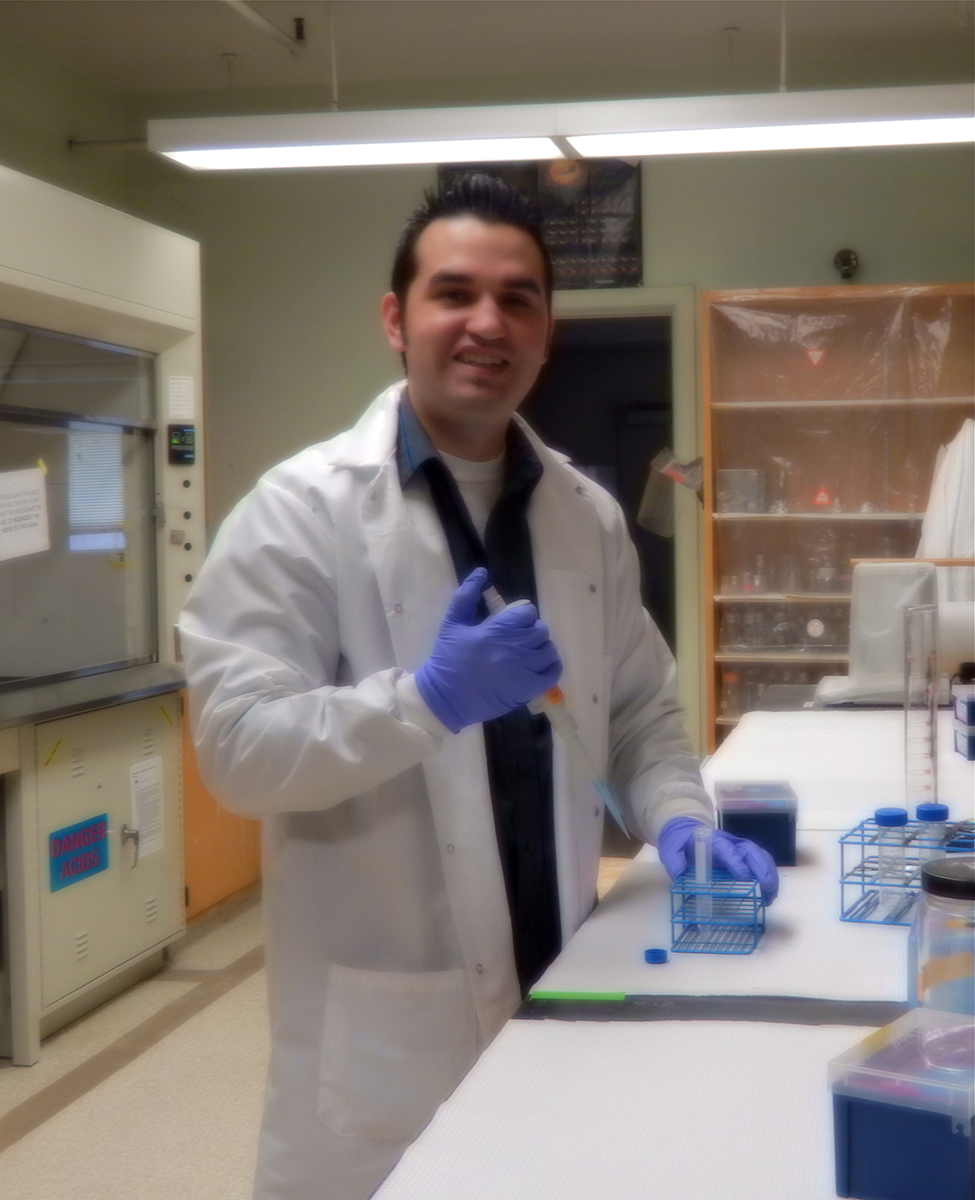From Scorpions to Asthma: An interview with Alex Castañeda, WCAHS Seed Grant Award Winner
 Alex Castañeda is a 4th year UC Davis graduate student. He was awarded a 2013-2014 WCAHS Seed Grant to help him study air pollution and asthma. Below, he talks about what led him to love science and work to improve agricultural health and safety.
Alex Castañeda is a 4th year UC Davis graduate student. He was awarded a 2013-2014 WCAHS Seed Grant to help him study air pollution and asthma. Below, he talks about what led him to love science and work to improve agricultural health and safety.
Favorite high school subject: “Biology. My high school biology teacher was passionate about making students learn the material, not just memorize it.”
Family: “My parents are originally from Mexico. They encouraged me to go to college and are proud of me. They both were well educated in Mexico – my dad as an electrical technician and my mom as a nurse. While my mom became a full time homemaker with 3 kids in the U.S., she shared her love of science with me and the importance of helping people.”
Scorpions: “After getting a bachelor’s degree at UC Irvine, I went to CSU Bakersfield for a master’s degree. My project was to understand how scorpions are affected by their environment and human activity. Things like building roads and homes can isolate scorpions from each other and their populations can disappear. Depending on your view, this could be good or bad!”
Air Pollution and Asthma: “While working on the scorpions project, I learned about molecular biology and how the environment can really affect us. I decided to use the same scientific techniques to study lung disease at UC Davis. The WCAHS Seed Grant has helped me study how air pollution, especially the tiny particulate matter in the air, causes asthma.”
“Asthma is a major health problem in many agricultural areas of California, especially near Fresno and Bakersfield. We want to understand why this happening and if there are certain parts of air pollution that are worse than others. To do this, we collaborate with Dr. Keith Bein, an air quality researcher. He uses sophisticated equipment to capture air samples and separate out the different components for testing. Many of the different components are pollutants from regular activities, like driving and home cooking, and some agricultural practices, like pesticide application and plowing.”
“Our goal is to better protect people, especially those working in dusty agricultural environments, by understanding exactly which components pose the greatest risk to health. We have found that mice exposed to certain types of particulate matter are more likely to get asthma when they are exposed to something allergic.”
Advice to young students: “Volunteer. Doing activities through my church (soup kitchen) and high school student council (organizing events) opened my eyes to what I liked best – helping people. It feels great to know that what I am doing in the lab could be used to improve the health of people.”
Future plans: “I will graduate next year and plan to do an academic post-doc in a lab looking at lung disease. Staying in California would be great, but I’m open to other possibilities.”
WCAHS Seed Grants support graduate student education and training, assist in connecting students to agricultural health and safety careers, and are open to student researchers in the WCAHS four-state region: AZ, CA, HI, and NV.
For more information, contact WCAHS Manager, Cindy Valencia, cvavelar@phs.ucdavis.edu.
